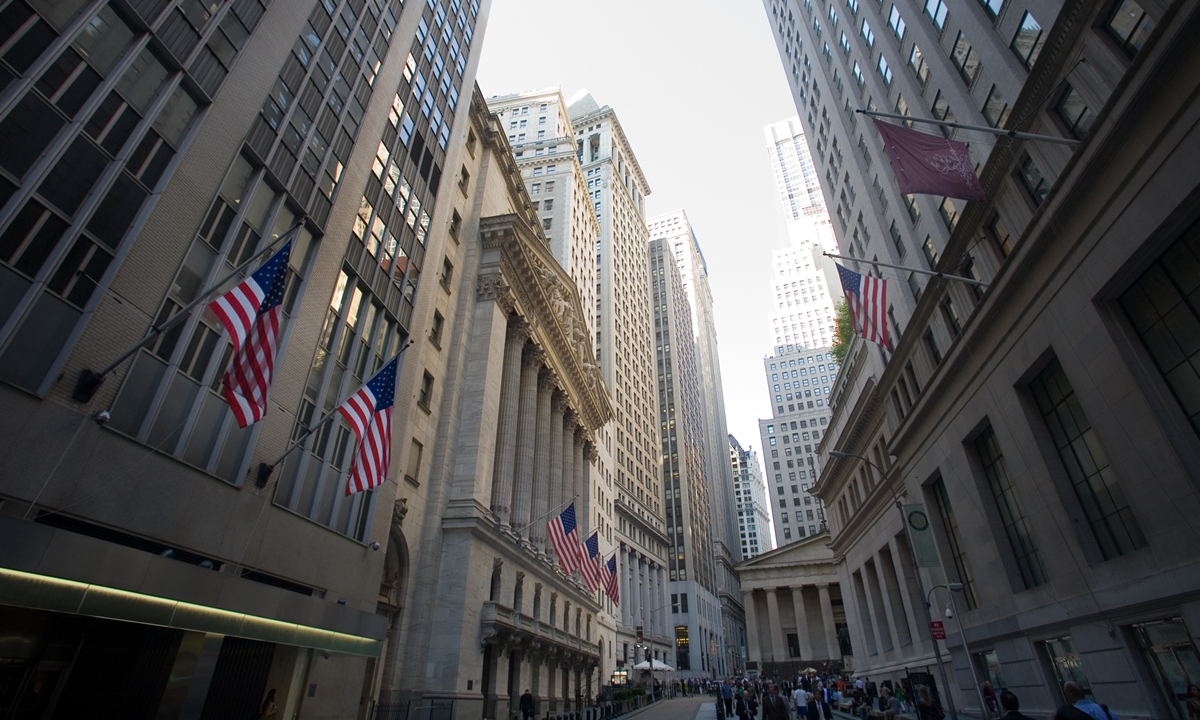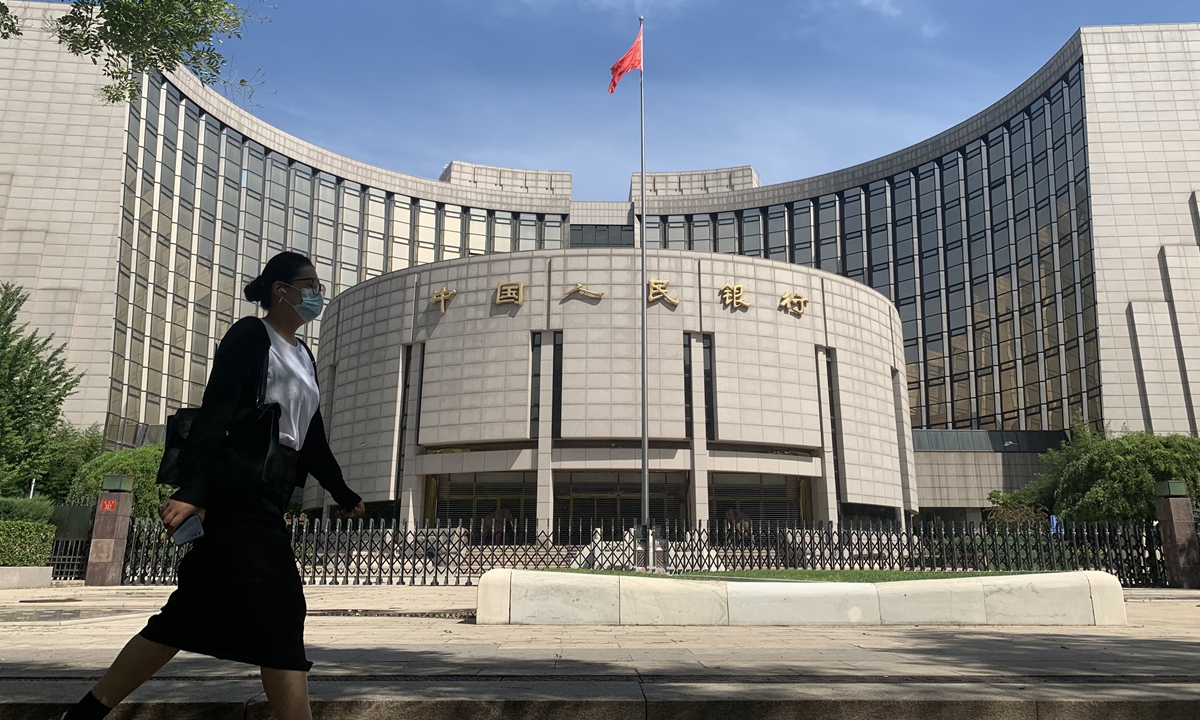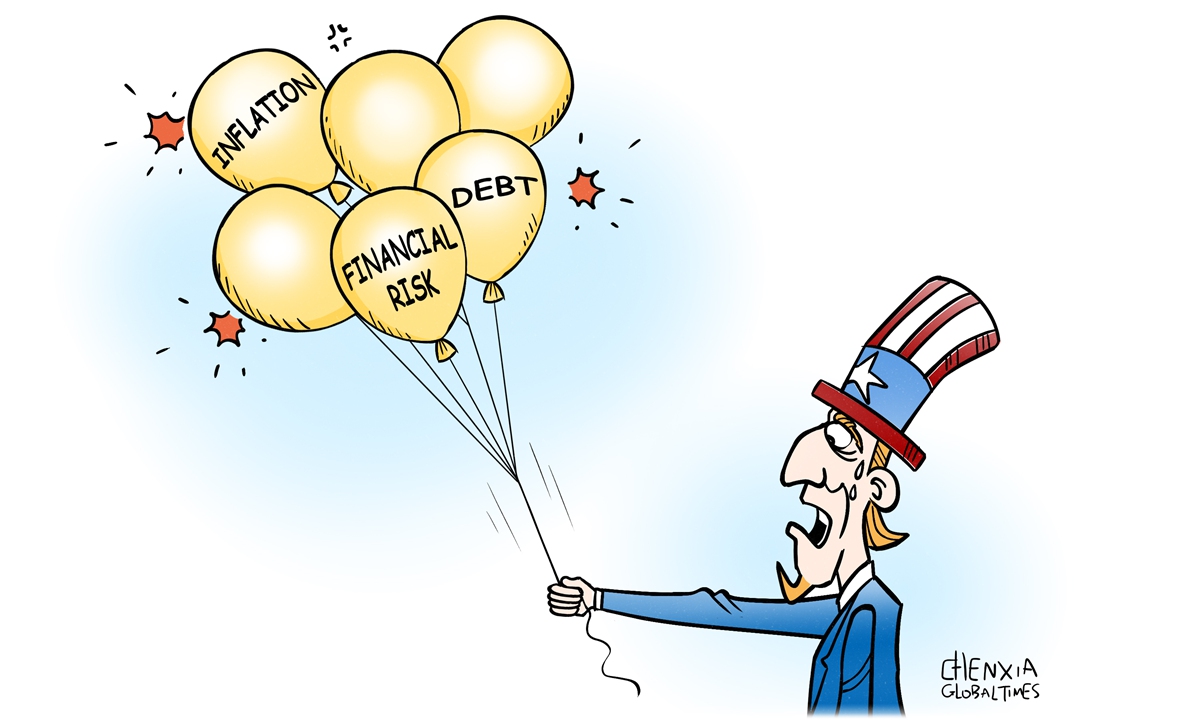US Fed holds rates steady while opening door for tightening
China’s independent monetary policy acts as rock of stability amid external uncertainties

A view of Wall Street in New York, the US Photo: IC
After a two-day meeting, the rate-setting Federal Open Market Committee (FOMC) on Wednesday unanimously agreed to leave its key policy rate unchanged, as the market has widely expected.
The US Federal Reserve's decision, seeking a balance between persistent inflation and robust consumer spending, also maintained a hawkish policy stance for a further rate increase in the near future, which hints at profound risks for the US economy more than confidence in a "solid" economy, Chinese economists said.
This cycle of aggressive interest rate hikes by the US central bank, which has haunted emerging markets and triggered reliance on the US dollar, has had a limited impact on the Chinese economy due to the latter's relatively independent monetary policy, they said.
The FOMC decided to leave the benchmark overnight interest rate in the 5.25-5.50 percent range, the highest in 22 years. The temporary pause was the second in a row after September.
"In determining the extent of additional policy firming that may be appropriate to return inflation to two percent over time, the Committee will take into account the cumulative tightening of monetary policy, the lags with which monetary policy affects economic activity and inflation, and economic and financial developments," the Fed said in a statement.
The US consumer price index stood at 3.7 percent in September, unchanged from August, data from the US Bureau of Labor Statistics showed.
"The spontaneous rise in market interest rates, coupled with the intensification of geopolitical conflicts in the Middle East, has caused the further decline of three major US stock indexes, and financial conditions have tightened significantly, which is basically equivalent to an interest rate hike.
"This situation greatly weakens the need for further tightening by the Fed at this point," Wang Qing, the chief macroeconomic analyst at Golden Credit Rating International, told the Global Times on Thursday.
Since the September FOMC meeting, US medium- and long-term market interest rates, represented by the 10-year Treasury yield, have risen sharply by more than 40 basis points, reaching a peak of close to 5 percent.
The Fed's room for further interest rate hikes is quite limited, and it can basically be concluded that the US interest rate hike cycle is coming to an end, economists said.
"A downward tendency for US core inflation is now basically confirmed. It's also unlikely that the current strong performance of the US economy will persist next year, so economic growth impetus for the country will be further dampened in 2024," Wang said.
If US consumption and employment data in the coming period miss forecasts, the Fed is highly likely to retain the current policy rate, Zhou Maohua, an economist at China Everbright Bank, told the Global Times on Thursday.
What happens in the world's largest economy could have serious implications for the global economy, particularly developing countries, experts said.
Fed rate hikes have led to massive capital inflows to the US and increased outflows from the developing economies that rely on the dollar for trade and borrowing.
Under this circumstance, calls for de-dollarization have been growing since the start of the year. In the US itself, despite slowing inflation, many Americans are still struggling with high prices and surging bills.
"The Fed is completely divorced from reality. They're playing with numbers… because of high interest rates, people cannot afford small business loans and mortgages," Diane Sare, an independent candidate for the US Senate in the 2024 general election in the state of New York, told the Global Times in a recent interview.
The danger that the US economy poses to the global economy is in stark contrast to China's contribution to global growth, despite US officials' and media outlets' hyped claims about the Chinese economy, experts said.
China's economic growth rate this year is far ahead of the global average, and its contribution to the world economy may remain at nearly one-third until the end of 2024, Steven Barnett, the IMF's Chinese representative, said during the 2023 Tianjin Forum held in North China's Tianjin Municipality in October.
The world's second-largest economy expanded at a 4.9 percent in the third quarter, beating forecasts, official data showed.
Overall, the impact of this tightening cycle by the Fed on China's economy is limited, and as the US rate hike cycle is coming to an end, the marginal impact on China will continue to weaken, mainly because China and the US are now operating in different cycles and China is adopting a relatively independent and sound monetary policy, according to Zhou.
"The recent rise in US Treasury yields has suppressed global assets, and the US stock market fell significantly. In comparison, the valuation advantage of the Chinese securities market has been further highlighted," Chen Li, chief economist of Chuancai Securities, told the Global Times on Thursday.


